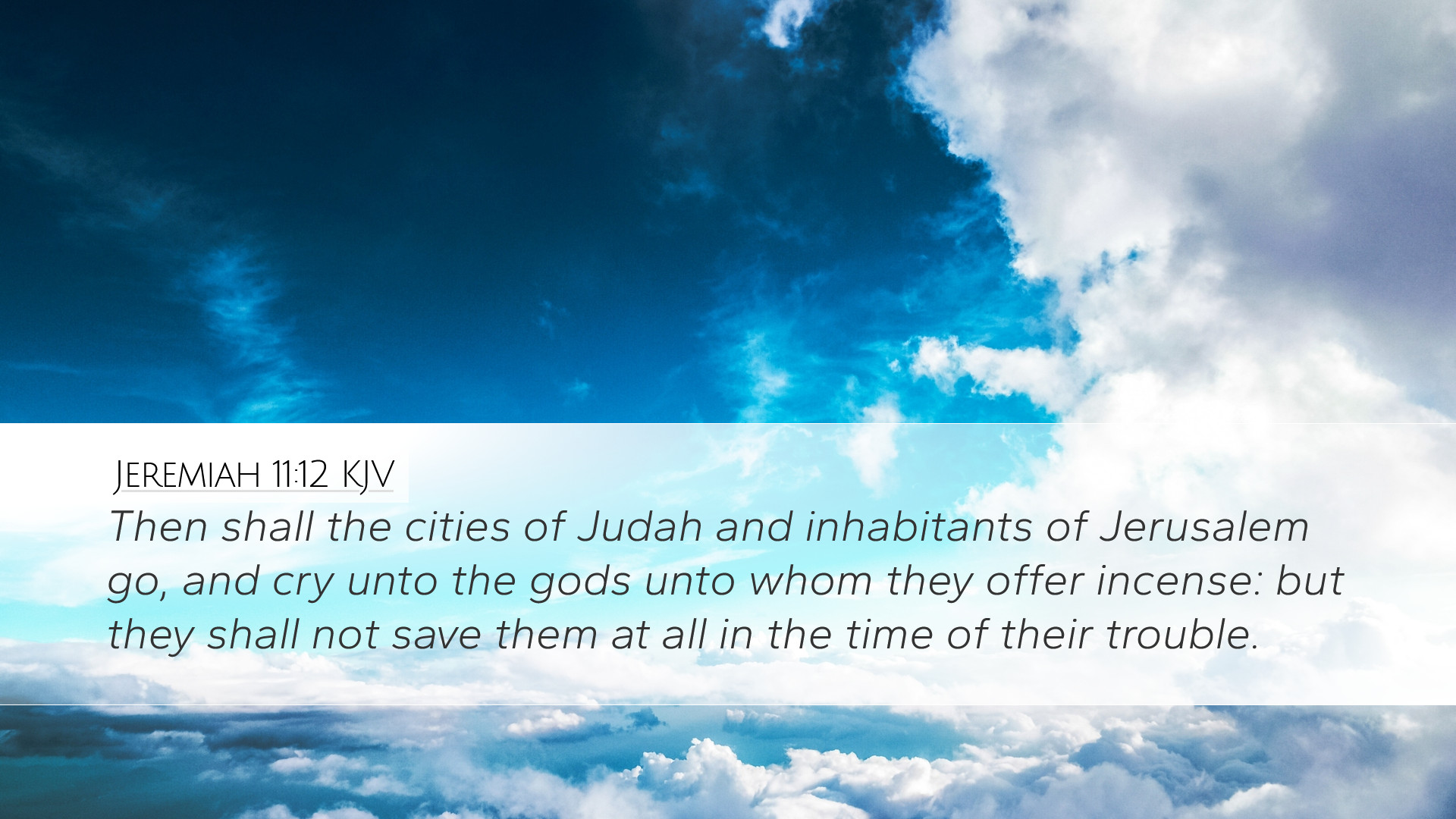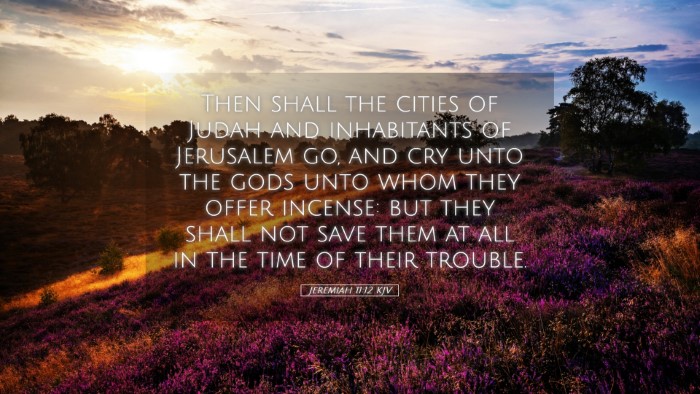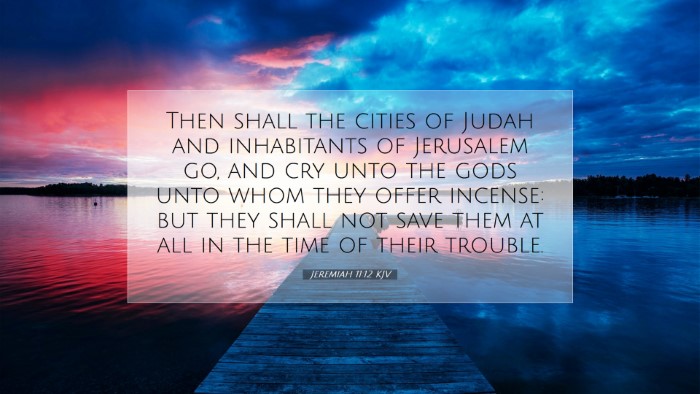Bible Commentary on Jeremiah 11:12
Jeremiah 11:12 (KJV): "And then shall the cities of Judah and the inhabitants of Jerusalem go, and cry unto the gods unto whom they offer incense: but they shall not save them at all in the time of their trouble."
Introduction
The book of Jeremiah presents the prophet's reflections on the impending judgment of Judah and Jerusalem. In this context, Jeremiah 11:12 serves as a poignant reminder of the futility of idolatry and the ineffectiveness of turning to false gods in times of crisis.
Analysis of the Verse
This verse encapsulates a vivid picture of the consequences that arise when the people reject God's covenant. Jeremiah prophetically warns that the very deities that the people of Judah worship will be powerless to aid them when disaster strikes.
1. The Cities of Judah and the Inhabitants of Jerusalem
Contextual Background: The specific mention of the "cities of Judah" and "inhabitants of Jerusalem" emphasizes the collective nature of the sin of the people. They are depicted not merely as individual transgressors but as a society that has largely abandoned its faithfulness to the covenant established by God.
2. Crying unto the Gods
The act of crying out to these gods denotes a desperate appeal for deliverance. As noted by Albert Barnes, this expression reveals the deep-seated reliance of the people on their idols in times of trouble. However, this reliance is shown to be in vain, highlighting the impotence of idolatry.
3. Incense Offerings
Offering incense is a significant ritual, representing worship and devotion. Matthew Henry remarks that the very practices intended to curry favor with these idols demonstrate a misplaced trust. The people had preferred the rituals of idolatry over genuine repentance and loyalty to Yahweh.
4. The Inability of False Gods
The phrase "they shall not save them at all" underscores the total inability of these false deities to provide salvation. Adam Clarke points out that the idols are not just incapable; they are fundamentally powerless. This serves as a critical admonition for both ancient Israel and contemporary believers regarding the dangers of depending on anything other than the true God.
Theological Implications
This verse elucidates significant theological themes relevant for pastors and theologians alike:
- Idolatry's Futility: The text reinforces the idea that turning to idols—be it physical or metaphorical—leads to spiritual desolation.
- Judgment and Warning: The prophetic nature of Jeremiah’s message acts as a warning that complacency in faith can lead to divine judgment.
- The Covenant Relationship: It reflects the importance of the covenant relationship between God and His people, highlighting the expectation of faithfulness.
Contemporary Relevance
For modern readers, Jeremiah 11:12 serves as a stark reminder of the need for discernment in times of crisis. It challenges believers to evaluate their own sources of hope and security.
1. Modern Idols
Today, many may not worship carved images but rather place their trust in societal constructs, wealth, or personal achievements. Matthew Henry would advocate for introspection to ensure that one’s faith is aligned with God’s covenant as opposed to transient and hollow substitutes.
2. The Role of Community
The corporate nature of sin in Judah is relevant to church communities today. Collaboration in faith and mutual accountability are crucial elements in fostering a genuine relationship with God.
Conclusion
In summary, Jeremiah 11:12 paints a vivid and sobering picture of the consequences of forsaking God for false religions. It serves as a clarion call for repentance, loyalty, and the recognition of God’s sovereign power over all aspects of life. This verse not only admonishes the original audience of Jeremiah but continues to resonate with believers today, urging a return to true worship and reliance on the Living God.


